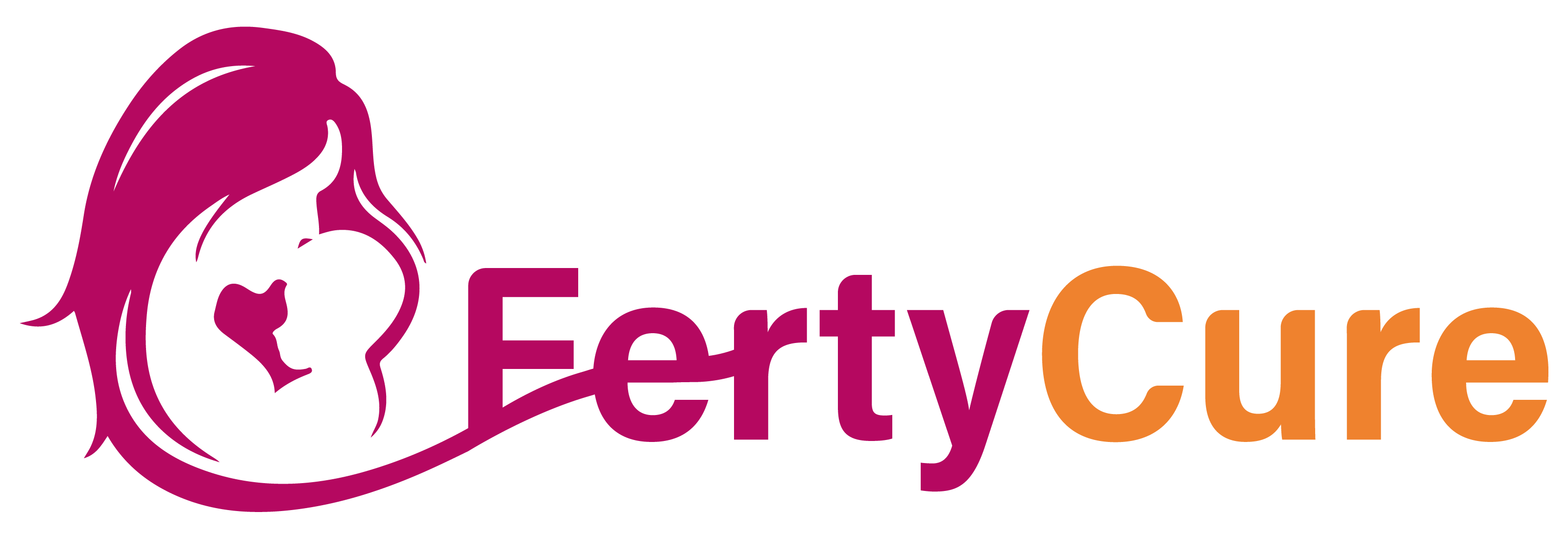Table of Contents
Why India is a Preferred Destination for Sudanese IVF Patients

Introduction
Infertility is a common problem that affects many couples around the world. According to the World Health Organization (WHO), infertility is defined as the inability to conceive after 12 months of regular unprotected sexual intercourse.
The causes of infertility can be various, such as hormonal imbalances, genetic disorders, infections, environmental factors, lifestyle habits, and age. Infertility can have a negative impact on the physical, emotional, social, and economic well-being of the affected individuals and couples.
What is IVF ?
In vitro fertilization (IVF) is one of the most advanced and effective assisted reproductive technologies (ART) that can help infertile couples achieve their dream of parenthood. IVF involves the fertilization of an egg by a sperm outside the body in a laboratory. The resulting embryo is then transferred to the uterus of the woman or a surrogate mother for implantation and pregnancy.
IVF can overcome many causes of infertility, such as blocked or damaged fallopian tubes, low sperm count or motility, endometriosis, polycystic ovary syndrome (PCOS), and unexplained infertility.
However, IVF is not easily accessible or affordable for everyone. The cost, availability, quality, and success rate of IVF vary widely across different countries and regions. Some of the factors that influence the cost and outcome of IVF include the type and number of cycles, the medications and procedures involved, the expertise and experience of the medical team, the legal and ethical regulations, and the socio-cultural norms and expectations.
For many Sudanese couples who are struggling with infertility, India is a preferred destination for IVF treatment. India has emerged as a global leader in providing high-quality and low-cost IVF services to both domestic and international patients.
According to a report by Grand View Research, the Indian IVF market size was valued at USD 478.2 million in 2018 and is expected to grow at a compound annual growth rate (CAGR) of 10.1% from 2019 to 2026. The report also states that India accounted for about 45% of the global IVF cycles in 2018.
There are several reasons why India is a preferred destination for Sudanese IVF patients. Some of them are:
Reasons why India is a preferred destination for Sudanese IVF patients
Cost-effectiveness:
The cost of IVF in India is much lower than in many other countries, such as the USA, UK, Australia, Canada, and South Africa. The average cost of IVF in India ranges from USD 2,500 to USD 4,500, whereas it can cost up to USD 15,000 in the USA, USD 10,000 in the UK, USD 9,000 in Australia, USD 7,000 in Canada, and USD 6,000 in South Africa.
The cost of IVF in India depends on various factors, such as the type and number of cycles, the medications and procedures involved, the choice of clinic and doctor, and the presence or absence of complications or additional services. However, even after adding the expenses of travel, accommodation, food, and visa, the overall cost of IVF treatment in India is still much cheaper than in many other countries.
Availability and accessibility:
India has a large number of IVF clinics that offer a wide range of services and facilities to cater to the diverse needs and preferences of patients. There are more than 500 registered IVF clinics in India, with most of them located in major cities such as Delhi, Mumbai, Bangalore, Chennai,
Hyderabad, Kolkata, Pune, Ahmedabad, Jaipur, Chandigarh, etc.
These clinics are well-equipped with state-of-the-art technology and infrastructure to provide high-quality care and treatment to patients. Moreover, these clinics are easily accessible by road, rail, air, or public transport from different parts of India and abroad.
Quality and success rate
India has some of the best doctors and specialists in the field of reproductive medicine who have extensive training and experience in performing IVF procedures.
These doctors are highly qualified and certified by reputed national and international organizations such as the Indian Council of Medical Research (ICMR), the Indian Society for Assisted Reproduction (ISAR), the American Society for Reproductive Medicine (ASRM), the European Society for Human Reproduction and Embryology (ESHRE), etc.
These doctors follow strict protocols and guidelines to ensure safety and quality standards in IVF treatment. They also use advanced techniques such as intracytoplasmic sperm injection (ICSI), blastocyst culture and transfer (BCT), preimplantation genetic testing (PGT), embryo freezing (vitrification), etc., to improve the chances of success.
The success rate of IVF treatment in India varies from clinic to clinic and depends on several factors such as the age and health of the patient, the cause and duration of infertility, the type and number of cycles, the quality and quantity of eggs and sperm, the skill and expertise of the doctor, etc.
However, the average success rate of IVF in India is around 40% to 75%, which is comparable to or higher than many other countries.
Legal and ethical regulations:
India has a favorable legal and ethical environment for IVF treatment that allows patients to choose from various options and services according to their needs and preferences. India has a comprehensive legislation called the Assisted Reproductive Technology (Regulation) Bill, 2020, which aims to regulate and monitor the IVF industry in India.
The bill provides for the establishment of a national board, state boards, and registration authorities to oversee the functioning of IVF clinics and banks. The bill also lays down the rights and duties of patients, doctors, donors, surrogates, and children born through IVF.
The bill also prohibits certain practices such as sex selection, cloning, embryo sale, etc., and prescribes penalties for violations. Moreover, India has a liberal policy on egg and sperm donation, embryo donation, and surrogacy, which enables patients to avail these services without much hassle or stigma.
However, patients are advised to consult their doctors and lawyers before opting for these services to ensure compliance with the legal and ethical norms.
Socio-cultural norms and expectations
India has a diverse and vibrant culture that respects and welcomes people from different backgrounds and beliefs. India has a long history of medical tourism that dates back to ancient times when people from different parts of the world came to India for healing and wellness. India has a tradition of hospitality and generosity that makes visitors feel comfortable and at home.
India also has a strong family system that supports and encourages couples who are undergoing IVF treatment. Moreover, India has a low incidence of social discrimination or violence against infertile couples or children born through IVF. India also has a positive attitude towards adoption and foster care, which provides alternative options for childless couples.
These are some of the reasons why India is a preferred destination for Sudanese IVF patients. However, there are also some challenges and limitations that patients should be aware of before choosing India for IVF treatment. Some of them are:
Challenges and Limitations
Cultural differences:
Although India is a tolerant and inclusive society that respects diversity, there may be some cultural differences or misunderstandings that may cause discomfort or confusion for patients. Patients may encounter different customs, traditions, values, beliefs, practices, habits, food, clothing, etc., that may differ from their own.
Patients may also face some social pressure or expectations from their family or community regarding their fertility status or choice of treatment.
Therefore, patients are advised to research and learn about the culture and lifestyle of India or their specific destination before traveling. Patients are also advised to respect the local culture and norms and avoid any behavior or action that may offend or hurt the sentiments of others.
Medical complications:
Although IVF treatment in India is generally safe and effective, there may be some risks or complications involved that may affect the health or outcome of the patient or the child. Some of the possible complications include ovarian hyperstimulation syndrome (OHSS), ectopic pregnancy, multiple pregnancy, miscarriage, preterm labor, low birth weight, birth defects, infection, bleeding, etc.
Therefore, patients are advised to choose a reputed and reliable clinic and doctor who can provide quality care and treatment and handle any emergency situation. Patients are also advised to follow the doctor’s advice and instructions carefully and report any symptoms or problems immediately.
Legal issues
Although India has a favorable legal framework for IVF treatment that allows patients to choose from various options and services according to their needs and preferences, there may be some legal issues or disputes that may arise during or after the treatment.
Some of the possible legal issues include consent, confidentiality, liability, ownership, custody, inheritance, citizenship, etc., involving the patient, doctor, donor, surrogate, child, etc.
Therefore, patients are advised to consult their lawyers and doctors before opting for any service or procedure to ensure compliance with the law and protect their rights and interests.

